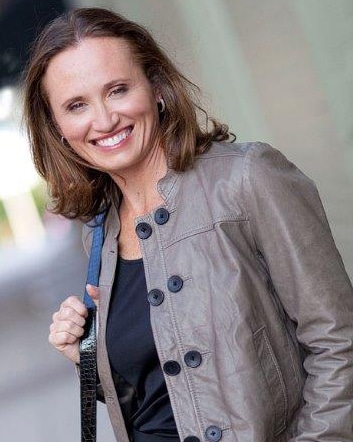by Karissa Thacker
When we hear the word “sabbatical,” the reaction from most of us is, “Where do I sign up?” The notion of getting out of the daily grind for a while is pretty appealing. The word is typically defined as a timeout for a college professor to study or travel, traditionally every seven years. It comes from the word Sabbath, the day for rest and contemplation.
After spending time with Sarah Durham, president of Big Duck, as a part of our Authentic Leadership webinar series, I have a whole new understanding of the term sabbatical. Sarah took a sabbatical from her job and found the process to be both productive for her personally and productive for her organization. She used her sabbatical to step back, with intention and thoughtfulness, and tune into herself and her values at a deep level, as a professional and as a human being.
For authentic leaders, it’s vital to learn how to step out of reactivity, look at the bigger picture, and stay attuned to the deeper aspects of self—personal meaning, values, purpose. In my work with leaders every day, I bear witness to how hard this can be to actually do versus talk about. What can we all learn from Sarah’s experience?
First, Sarah prepared her organization ahead of time. She made sure that her responsibilities were covered, coaching others to take on aspects of her job while she was gone. Sarah went on sabbatical for several months, but prepping your team can be important even if your sabbatical lasts only a day or a week. In preparing the rest of the organization, the leader is demonstrating care for the important work that must happen and the value of stepping out. Not an “either or” but a “both and.”
Second, Sarah had three very specific goals for her sabbatical, which were directly related to her values and sense of purpose, and her schedule while on sabbatical reflected those goals. This is key. I often see my clients struggling with exactly what to do when they take even a brief timeout. Being specific is important, whether you’re taking an hour, an afternoon, a week, or a longer time away from the job. I ask my clients what juices them up and gives them energy, and then we craft a schedule of “mini sabbaticals” taking that into account. For example, one of my clients frequently schedules a meeting with someone in a different organization that he thinks he can learn from. Another takes time out to go to museums while traveling for work. Another takes 30 uninterrupted minutes with the newspapers every morning at 5:30 am. Another uses his commute as a time to tune into himself at a deeper level. Small sabbaticals are a great way to really live the notion of stepping back and tuning into your purpose and to the bigger picture.
Third, as a result of her sabbatical, Sarah implemented changes when she returned to Big Duck. She essentially transformed her role and made room for others to do many things that she had been doing but didn’t find as meaningful anymore. So what’s the lesson here? Find something to do differently or practice implementing after your sabbaticals, whether they’re short or longer. Connect your timeouts to behavior that is more purposeful, meaningful, or effective for you. Think small; you don’t have to reinvent your job but, by taking regular sabbaticals from the daily grind, you just might reinvent yourself.
Join us on Thursday, January 21, 2016 at 7:00 pm EST, for our next provocative conversation on Authentic Leadership. Our guest will be Dr. Brian Little, an internationally acclaimed scholar and speaker in the field of personality and motivational psychology, author of Me, Myself and Us: The Science of Personality and the Art of Well-Being —and one of Tal’s beloved teachers. Find out more.
Karissa Thacker is a management psychologist who has served as a consultant for 200 Fortune 500 companies, including UPS, Best Buy, and AT&T. Her specialty is executive coaching, with a focus on increased performance combined with increased individual satisfaction at work. Karissa is the founder and president of Strategic Performance Solutions, Inc., a management consulting firm creating innovative solutions in the space of human performance and satisfaction at work. She serves as adjunct faculty for the Lerner School of Business at the University of Delaware.










